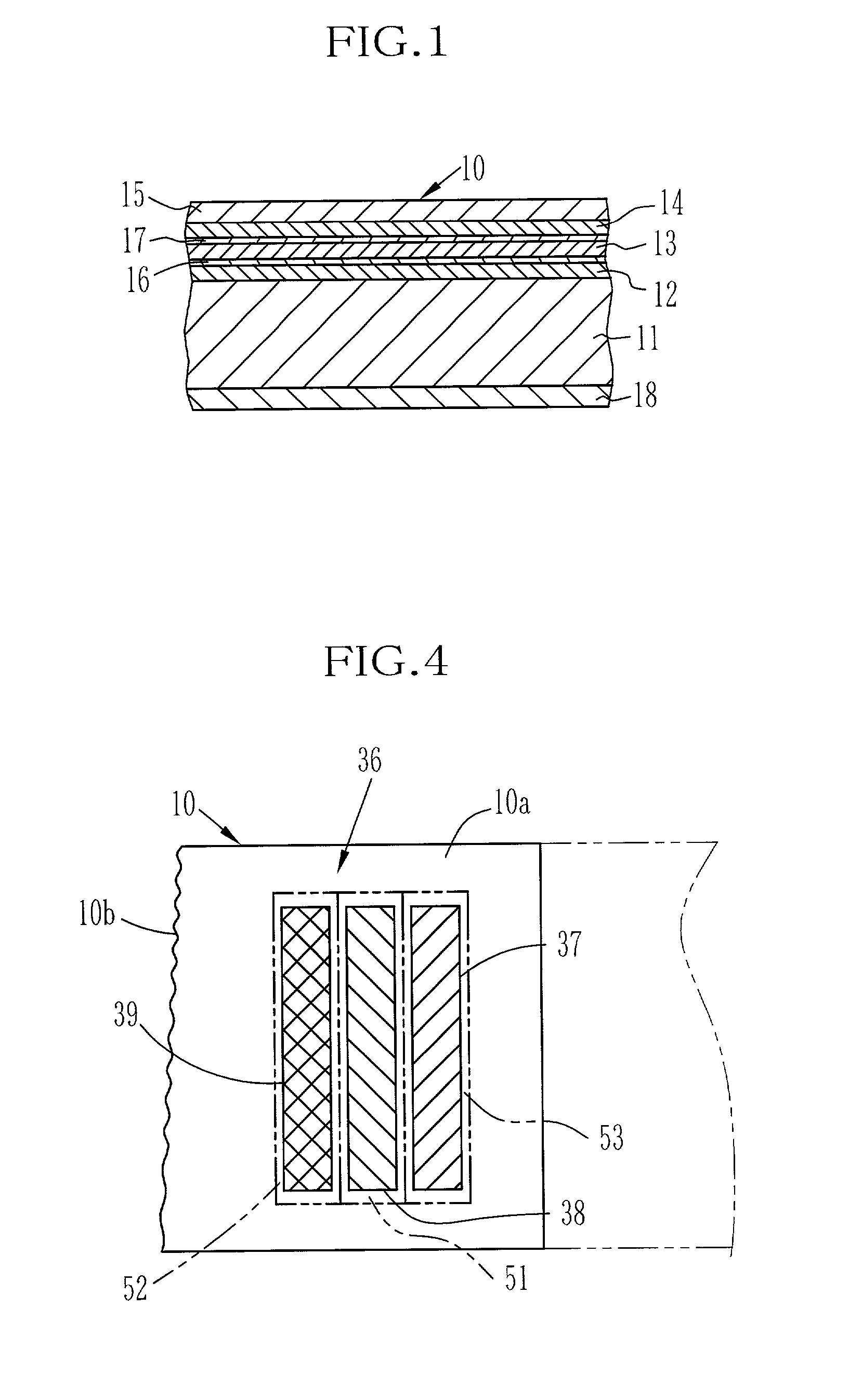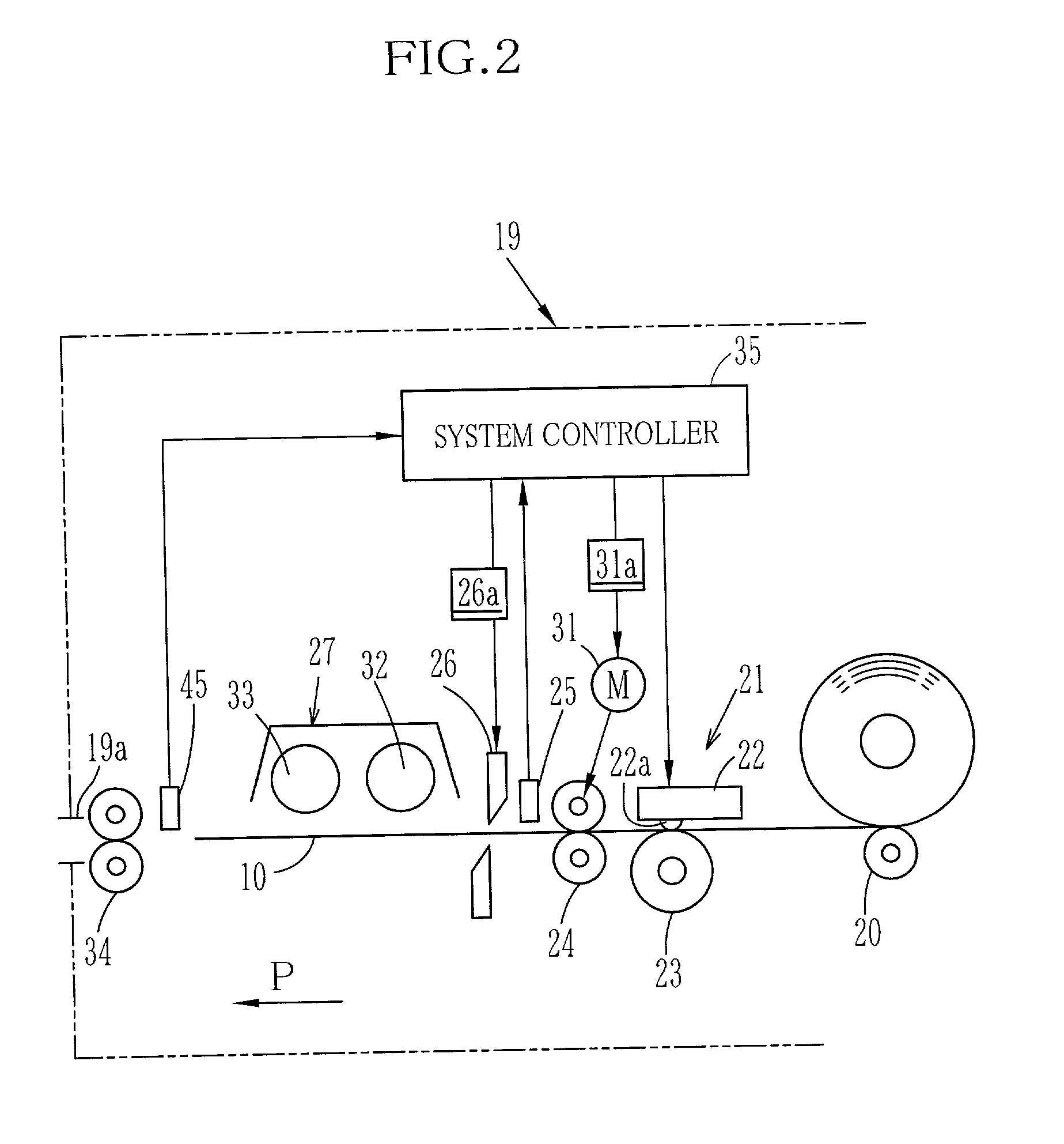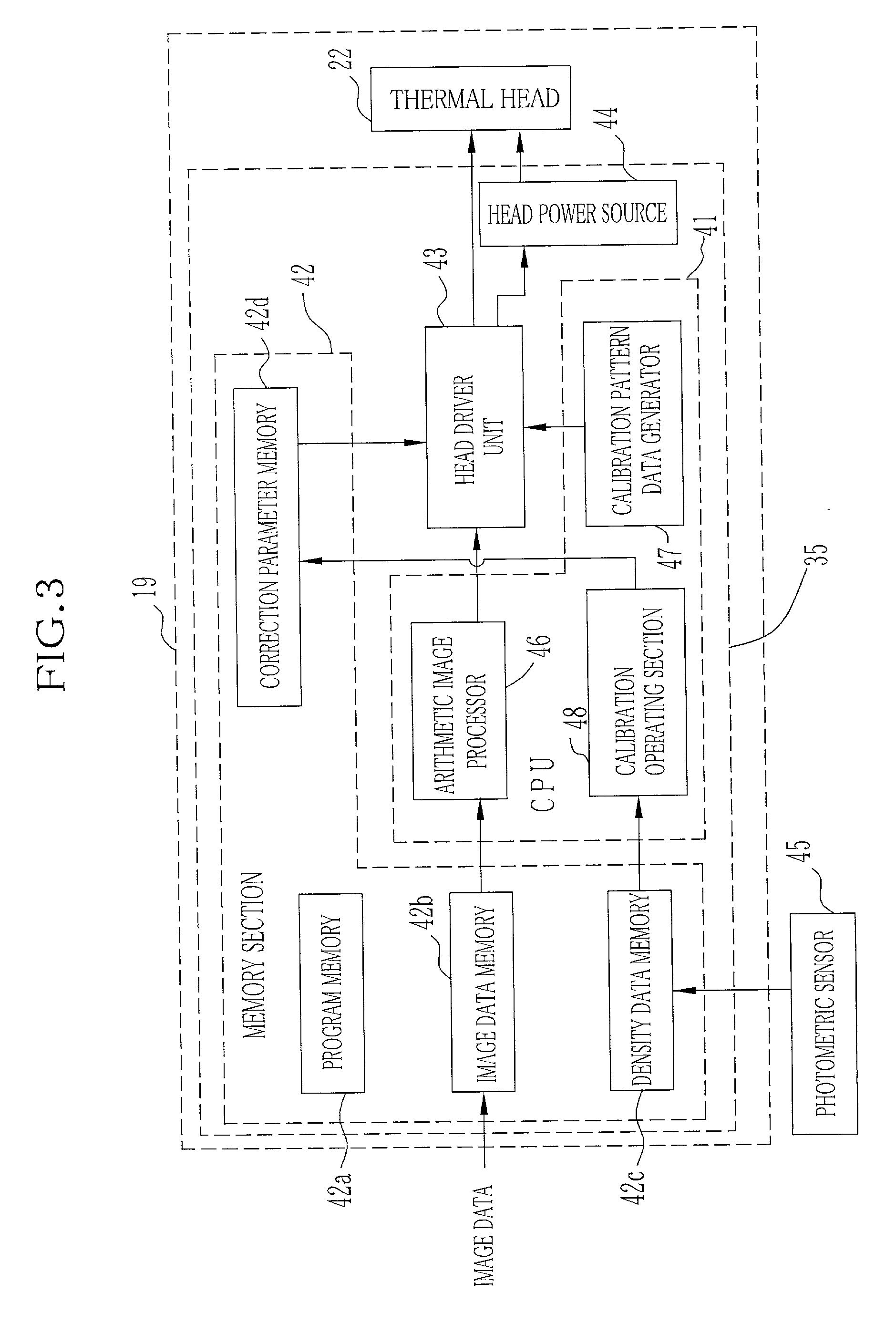Method of printing calibration pattern and printer
a technology which is applied in the field of printing calibration pattern and printer, can solve the problems of increasing the difficulty of regularly performing calibration in terms of cost and time efficiency, and the increase of the waste of recording paper
- Summary
- Abstract
- Description
- Claims
- Application Information
AI Technical Summary
Benefits of technology
Problems solved by technology
Method used
Image
Examples
Embodiment Construction
[0033] As shown in FIG. 1, a thermosensitive recording paper 10, hereinafter simply called the recording paper 10, has a thermosensitive cyan coloring layer 12, a thermosensitive magenta coloring layer 13, and a thermosensitive yellow coloring layer 14 formed atop another on one side of a base material 11. A transparent protective layer 15 is formed on an obverse of the recording paper 10, for protecting the coloring layers 12 to 14 from scratches or stains. The protective layer 15 is made from a transparent heat resistant resin material containing PVA (poly-vinyl-alcohol) as the main component. The three coloring layers 12 to 14 have different heat-sensitivities from each other that decrease with the depth or distance of the respective layers from the obverse of the recording layer 10. Intermediate layers 16 and 17 are formed between these three coloring layers 12 to 14, for adjusting the heat-sensitivities of the respective coloring layers 12 to 14. A back protective layer 18 is f...
PUM
 Login to View More
Login to View More Abstract
Description
Claims
Application Information
 Login to View More
Login to View More - R&D
- Intellectual Property
- Life Sciences
- Materials
- Tech Scout
- Unparalleled Data Quality
- Higher Quality Content
- 60% Fewer Hallucinations
Browse by: Latest US Patents, China's latest patents, Technical Efficacy Thesaurus, Application Domain, Technology Topic, Popular Technical Reports.
© 2025 PatSnap. All rights reserved.Legal|Privacy policy|Modern Slavery Act Transparency Statement|Sitemap|About US| Contact US: help@patsnap.com



